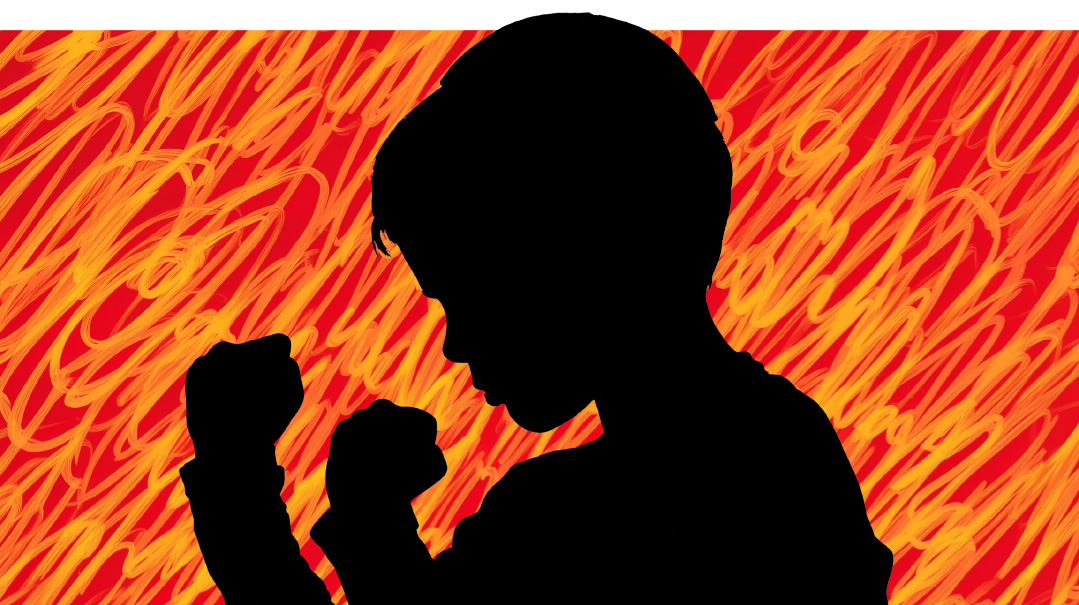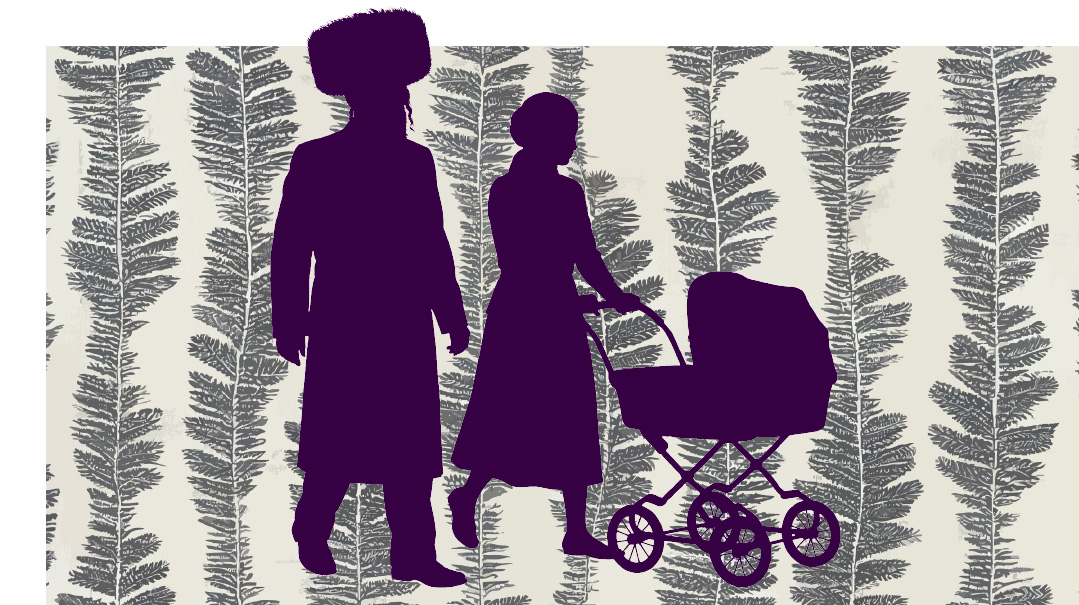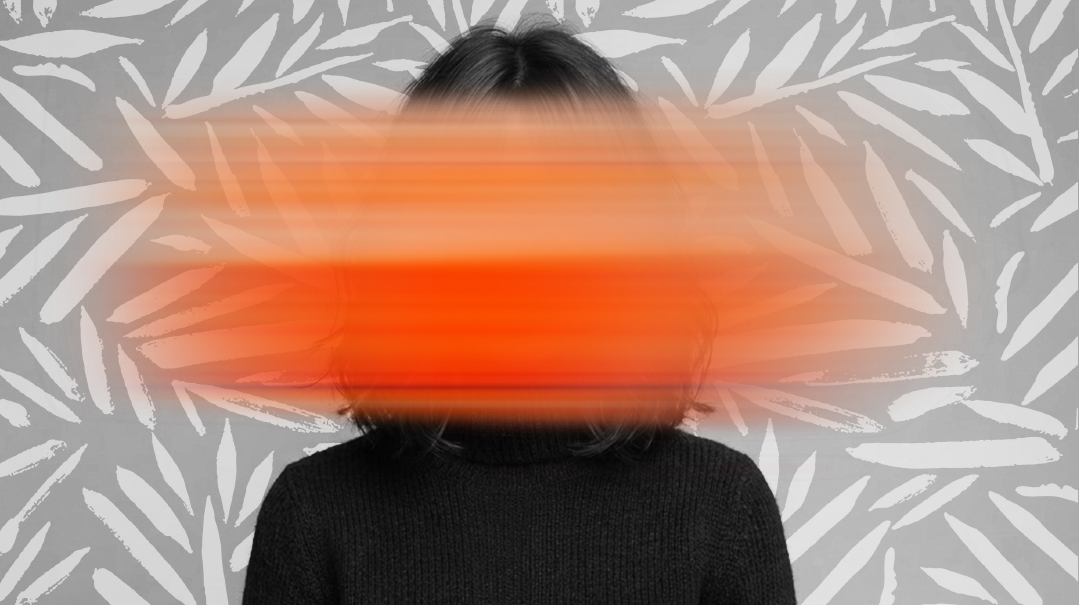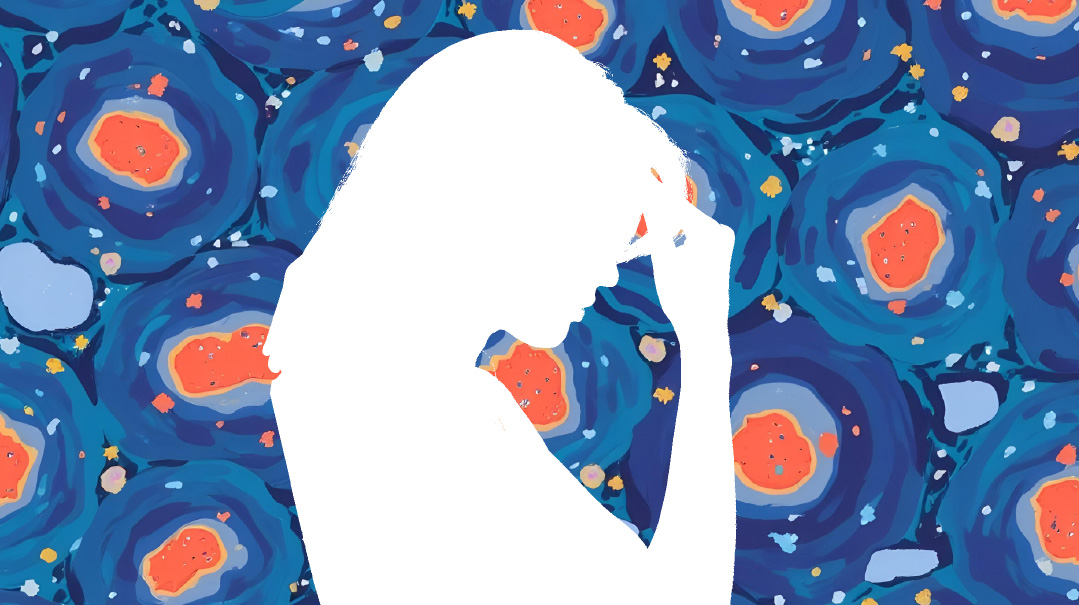Know This: Cancer
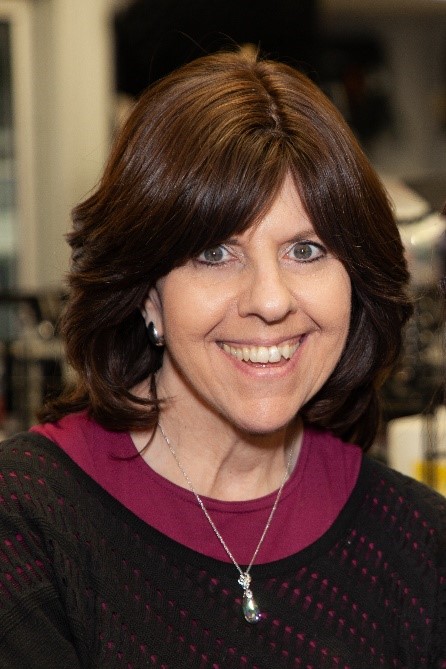
As told to Margie Pensak
Iwas in denial, at first. Isn’t cancer something that happens to other people? I couldn’t even say the “C” word when I was first diagnosed with breast cancer. All sorts of thoughts ran through my head. How would my children manage? How could I tell my mother —who had just been widowed — that her “baby” was sick?
What followed the diagnosis was huge: a double mastectomy, months of chemo, reconstructive surgery. But during the journey I discovered that Hashem instills in each of us a vast reserve of strength — we just need to know how to tap into it. I used this not only to fight the disease, but to fuel my growth and deepen my emunah in wondrous ways.
Diagnosis means entering a new reality. When I first found my lump, I was engulfed by fear. But that fear soon gave way to the gift of clarity. I turned to Hashem as I realized that no one but Him could get me through this. In fact, the first “kiss” I got from Hashem was having the doctor call me with my biopsy results 15 minutes before I was planning to head out for a shiur entitled, “Finding the Brachah in Adversity.” At the time, the speakers’ words barely registered. But looking back, I liken the timing of that shiur to Yosef being sold to the spice merchants, an event that showed him that Hashem was guiding him on every step of his journey. And so it was with me.
The next morning, during my davening, my kavanah was intense (funny how that works), and I was thinking deeply about how to make “peace” with Hashem. And then it hit me: Everything in life comes from Hashem, both what we perceive as good and not so good. And if He gave me a challenge, then it was custom made for me, for a reason. At that moment, I fully embraced His psak.
In one of his shiurim, my rav had taught that when dealing with hardship, we shouldn’t say, “Lamah — Why me?” The whys are Hashem’s cheshbon, not ours. We should say, “L’mah — What does He want from me?” From then on, I adopted a l’mah posture. It helped me immensely.
Another thing that gave me tremendous comfort was a chassidish insight I learned from the Likutei Moharan. It was a lesson on being present in the moment, understanding that Hashem gives us precisely the koach that we need to get through each day, and that a new reserve of koach awaits us every day. You only have the now, and you can’t worry about later.
It became an avodah to stay in the moment and to let Hashem grant me the koach to get through each stage of my difficult medical journey, day by day, minute by minute. This insight gave me such menuchas hanefesh that I stopped taking the Ativan my doctor had prescribed to help me sleep. Every night when I went to bed, I thought of Hashem taking care of me. I slept fine.
Of course, there were bad days. A “bad” day is when you feel your body is not your friend. I remember being so weak during chemo, my legs feeling so heavy, just walking to the sidewalk felt like a marathon. Eating was torture because nothing tasted right. My hair fell out. I had no eyebrows. Also, because I have a blood disorder, I had to have plasma transfusions every eight hours for eight days. After my surgery, I was often sleep deprived, because I couldn’t lie down comfortably.
So, of course, there were many down days — that’s to be expected. But embracing an attitude of positivity and emunah gave me a role to play in getting well. I wasn’t a victim or bystander in the story of my illness. Getting well became my job.
I realized that nothing would be gained by keeping my illness a secret. If anything, I wanted people’s tefillos. I gave three of my closest friends a list of people to call and break the news to, and ask them to daven for me. I didn’t want to repeat my story over and over — that would be exhausting — and I didn’t want any of my friends to find out from “the grapevine.”
For the most part, my friends and community stepped up and helped me and my family with innumerable acts of chesed. I couldn’t begin to count how often I repeated “Mi k’amcha Yisrael.” Every so often, an awkward individual, perhaps well-intentioned but a bit thoughtless, would utter comments that were not appreciated. I made a conscious decision to steer clear of such people and focus on the good. There was so much good all around me.
Baruch Hashem, the illness chapter in my life is over. Just this week, I stopped taking my aromatase inhibitor, the little white pill that I’d been popping daily for the past seven years. I was so excited to conclude this last vestige of my treatment that I impulsively tossed the empty vial into the air in celebration. My long journey was finally over!
I now mentor women fighting cancer. Many of them are not Jewish, so I translate the Moharan’s teaching into a mashal they can understand. If you want to climb Mount Everest, you can’t climb it in a day; it takes weeks to go up and weeks to come down. Getting through cancer is like climbing Everest. It’s really, really hard. It’s a huge struggle to reach the summit. You need to pace yourself and plan accordingly, you need to focus on the strength you need right then.
I wouldn’t wish the machalah on anyone and we should always daven for good health. But to get an inkling of that kind of clarity in Olam Hazeh? That was the gift of cancer that I wouldn’t trade for anything. The message of the shiur I attended on the night I received my diagnosis was pure emes: There is brachah in adversity. We just have to try to find it.
Nicest thing anyone ever did for me:
There were many, many, many nice things! Here’s a glimpse.
- Every Friday afternoon, for months, there was a warm kugel left on my porch from an anonymous kugel maker. I felt so comforted.
- In the middle of a blizzard, a friend drove me to the hospital to get my drains removed; during Snowmaggedon, another friend, a personal trainer, made a house call after my surgery to help me regain my strength.
- My mother moved into my hospital room and stayed with me for two weeks.
- My family and friends decorated my hospital room with posters and hearts to transform a dreary room into a haven of love and caring.
Never say:
- “Nebach” to me. I hate that word!
- Don’t go up to young children of the choleh to discuss her illness. It’s inappropriate. My daughter, who was 12, couldn’t stand when people asked her for my name. Children can be scared, even embarrassed, and hate the attention.
- “My brother had cancer. It was really bad and he died.” Why are you telling me this? It doesn’t help me.
Best things to say to someone who is sick:
- Say positive things that will make the person feel better, like, “My friend, who’s so amazing and inspiring, went through this; would you like to talk to her?”
- Normal everyday conversation, like: "How are your kids/parents?"
- You can never go wrong by saying, “Please give me your name; I want to daven for you.”
You probably never realized that
- You shouldn’t be afraid to approach someone who is ill. Just be normal. I’m still the same person.
- Don’t say, “Is there anything I can do for you?” Instead, offer something specific, like, “I’m at the store now, what can I buy you?”
- There are people who love to do chesed, which is great, but nobody wants to be a “chesed project.” There are people who I knew casually who got much friendlier with me when I was sick. When I got well, they disappeared from my life and I felt bad, realizing belatedly that their friendship hadn’t been genuine.
(Originally featured in Family First, Issue 604)
Oops! We could not locate your form.

